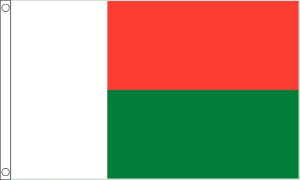Language/Southern-betsimisaraka-malagasy/Grammar/Pronouns
Hi Southern Betsimisaraka Malagasy learners! 😊
In this lesson, we will cover the pronouns in Southern Betsimisaraka Malagasy. Pronouns are an essential part of communication and can help us avoid repetition. They help us refer to someone or something without having to use that person's name or the name of the object, making our communication more efficient. Don't hesitate to practice with native speakers you can find on Polyglot Club and ask them any questions!
Personal Pronouns[edit | edit source]
Personal pronouns allow us to refer to people or things without using their name. Here are the Southern Betsimisaraka Malagasy personal pronouns:
| Southern Betsimisaraka Malagasy | Pronunciation | English |
|---|---|---|
| I | aho | I, me |
| you (singular) | ianao | you |
| he/she/it | izy | he/she/it |
| we (inclusive) | isa | we (including you) |
| we (exclusive) | izahay | we (excluding you) |
| you (plural) | ianareo | you (pl.) |
| they | izy ireo | they |
Let's see an example in a dialogue:
- Person 1: Manao ahoana ianao? (How are you?)
- Person 2: Misaotra anao, tsara be. Ary ianao? (Thank you, I'm fine. And you?)
- Person 1: Tsara ihany, misaotra betsaka. (I'm fine too, thank you very much)
Demonstrative Pronouns[edit | edit source]
Demonstrative pronouns are used to refer to people, things or ideas that are near or far from the speaker or the listener. In Southern Betsimisaraka Malagasy, the demonstrative pronouns are:
| Southern Betsimisaraka Malagasy | Pronunciation | English |
|---|---|---|
| this | ity | this |
| that (near listener) | izany | that |
| that (far from speaker and listener) | ireny | that (over there) |
Let's see an example in a dialogue:
- Person 1: Ity vola ity dia tsy afaka avy hanokatra ny sary. (This money cannot be used to buy pictures.)
- Person 2: Oh, iza no mandà hany? (Oh, who can use it then?)
- Person 1: Izany mpamatsy vola izany. (That money-changer can use it.)
Interrogative Pronouns[edit | edit source]
Interrogative pronouns are used to ask questions. They are used to replace the unknown information of a sentence. In Southern Betsimisaraka Malagasy the interrogative pronouns are:
| Southern Betsimisaraka Malagasy | Pronunciation | English |
|---|---|---|
| who | iza | who |
| what | inona | what |
| how | ahoana | how |
Let's see an example in a dialogue:
- Person 1: Iza no mandà ny toerana? (Who is in charge of the site?)
- Person 2: Ireny mpitsara ohatra izany. (That is the example collector.)
Possessive Pronouns[edit | edit source]
Possessive pronouns are used to indicate ownership or relation. They are used to avoid repeating a noun when referring to something that has already been mentioned. In Southern Betsimisaraka Malagasy, the possessive pronouns are:
| Southern Betsimisaraka Malagasy | Pronunciation | English |
|---|---|---|
| my | ahy | my, mine |
| your | anao | your, yours |
| his/her/its | azy | his/her/its |
| our (inclusive) | antsika | our (including you) |
| our (exclusive) | ny antsika | our (excluding you) |
| your (plural) | anareo | your (pl.) |
| their | azy ireo | their |
Let's see an example in a dialogue:
- Person 1: Andao tokana rehefa maty ny hoany. (Let's plant one when the other one dies.)
- Person 2: Efa eo am-pitiavana ahy, manao ahoana hianao? (I already have one, how about you?)
- Person 1: Efa eo anao hatramin'izao indray. (You already have one too up to now.)
Reflexive Pronouns[edit | edit source]
Reflexive pronouns are used to indicate that the action of a subject reflects back onto itself. In Southern Betsimisaraka Malagasy, the reflexive pronoun is:
| Southern Betsimisaraka Malagasy | Pronunciation | English |
|---|---|---|
| myself, yourself, himself/herself/itself, ourselves, ourselves, yourselves, themselves | amin'ny teny anglisy | myself, yourself, himself/herself/itself, ourselves, ourselves, yourselves, themselves |
Let's see an example in a dialogue:
- Person 1: Mbola manome kilalao ve ianao? (Are you still playing soccer?)
- Person 2: Tsy afa-po sarotra an kolontsaina. (I'm addicted to playing kolontsaina.)
Indefinite Pronouns[edit | edit source]
Indefinite pronouns are used to indicate an indefinite, general or unknown person, thing or quantity. In Southern Betsimisaraka Malagasy, the indefinite pronouns are:
| Southern Betsimisaraka Malagasy | Pronunciation | English |
|---|---|---|
| someone, anyone | izay olona | someone, anyone |
| something, anything | izay zavatra | something, anything |
| some | inona izany | some |
| few | ambony | few |
| many | be dia be | many |
| all | rehetra | all |
Let's see an example in a dialogue:
- Person 1: Tiako ny ra-bioka manao izay. (I like to see the chameleon doing that.)
- Person 2: Tsy fanolorana rehetra mihitsy aho. (I won't give it all away.)
Conclusion[edit | edit source]
In this lesson, we have learned about the different types of pronouns in Southern Betsimisaraka Malagasy. Remember that the pronouns are an essential part of communication and can help you avoid repetition. Practice with the examples and with native speakers that you can find on Polyglot Club. Don't forget to check out the other grammar lessons in the Grammar section!
➡ If you have any questions, please ask them in the comments section below.
➡ Feel free to edit this wiki page if you think it can be improved. 😎
Sources[edit | edit source]
Upon wrapping up this lesson, take a look at these related pages: Southern Betsimisaraka Malagasy Grammar → Verb Conjugation ..., Nouns, Expressions of Time & Negation and Questions.

